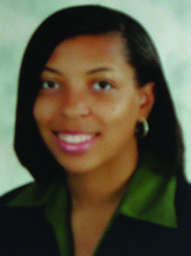Maintaining A Balance Between Necessity, Desire And Having An Impact
As podiatric physicians, it is often easy to get caught up in day-to-day routines, which usually involve dedicating a substantial amount of time to patients and our profession.
As a consequence, we often neglect other aspects of our lives and responsibilities that come with being a societal leader. Some points of neglect are personal, such as giving less attention to our own needs and wants, or those of our family and other loved ones. Sadly, we may also neglect staff, employers and colleagues. Lastly, but certainly not least, is neglect toward our community.
Numerous theories have been proposed in regard to human motivation. One of the best-known theories is Maslow’s hierarchy of needs, which argues that while people aim to meet basic needs, they seek to meet successively higher needs in the form of a pyramid. We must meet lower-order or deficiency needs such as physiological factors, safety, a sense of belonging and esteem before meeting higher-order or growth needs, such as self-actualization. Strict adherence to Maslow’s theory helps explain why physicians place patients in such high esteem. Safety, which includes among other things, security of employment, resources and property, is on the second tier of the pyramid.
There are also many different prioritization principles so we can maintain a balance between what is necessary and what is desired. One example is the Eisenhower Urgent/Important Principle, which divides tasks into four different categories. This principle considers tasks as important and urgent, important but not urgent, not important but urgent or not important and not urgent. Based upon these descriptions, we can create various matrices in order to aid with time management. This is pertinent for podiatrists as we are tasked with a multitude of responsibilities.
During a podiatrist’s career cycle, priorities differ. A student’s main priority is learning how to become a proficient podiatrist. The initial goal is acquisition of knowledge and then the goal shifts to attaining practical skills. Residents and young practitioners continue to hone skills, and place more attention on earning a living while some measure of youth and health remain. Additionally, securing some form of income is important in order to repay the steep costs of secondary and graduate education, and supplement the time away from earning income while in school for multiple years. Sometimes, this payback is coupled with commitment to public service and geographic restrictions that may not be particularly pleasurable but are necessary.
As time progresses, you become a more “seasoned” podiatrist so you can spend more time giving back. In order to give back, you must first obtain something to give. For podiatrists, we must learn as much as possible about our field so we can talk intelligently on various subjects. The more experience we gain, the more “seasoned” intelligence we bring to discussions on podiatric topics.
Although esteem and self-actualization are at the top of Maslow’s pyramid, we should address them early on in our careers. For example, as a podiatry student, you can volunteer at primary schools and colleges, telling them about your experiences. As a resident, you can revisit your podiatry school and discuss your experiences there. After being in practice, there are a plethora of opportunities to give back and volunteer. The more knowledge and experience that you have, the wider your impact. It is pertinent to inform the community about our services and to encourage more junior individuals to consider pursuing a career in healthcare. As demographic statistics are trending toward an aging population, it is important to have an appropriate number of specialists for health care demands.
For years, the field of podiatry has rated high on job satisfaction surveys and made top ten salary lists. Earning potential is certainly a draw toward podiatry but it should not be the sole reason. Podiatrists have the opportunity to mentor and develop knowledge and skills that they can utilize in many different avenues within the community. Podiatrists should find a way to include volunteer service among their myriad of priorities.
 Dr. Ryans is a graduate of the SSM DePaul Residency Program in St. Louis and is now in private practice.
Dr. Ryans is a graduate of the SSM DePaul Residency Program in St. Louis and is now in private practice.











